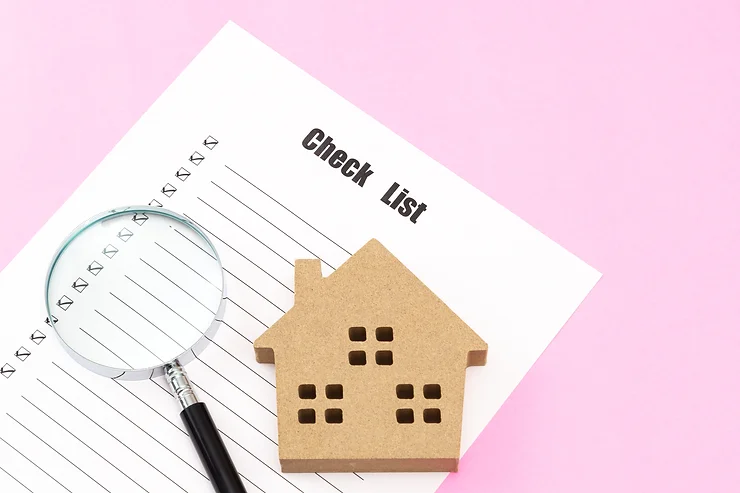Home Inspection Checklist: Fix these items to avoid a BAD Home Inspection!
- caitlinleetolley

- Sep 5, 2024
- 4 min read
Updated: Sep 13, 2024
The reason were going to address these issues ahead of time is to have a smoother Home Inspection report. The last thing you want is to have a conditional offer that falls through after the Buyer sees the inspection report. Buyers (especially first-time) tend to overestimate the cost of repairs and either ask for a huge reduction in price, or worse, become overwhelmed with the deferred maintenance and back out of a deal altogether. Lets get into it:
Smoke detectors and carbon monoxide detectors.
In Ontario, every home is required by law to have smoke alarms on every storey, and outside every sleeping area. You must also have a working CO alarm adjacent to each sleeping area of the home if you have a fuel-burning appliance, a fireplace, or an attached garage. The home inspector will fail you if these basic safety items are not functioning or installed correctly, so please make sure batteries are fresh and run a test on your homes system prior to your inspection.
Windows.
These seem to always find a place on every home inspection. Windows need to all be functioning properly, so check if they can open and close correctly, and make sure they are properly caulked with working cranks.
Lighting.
Make sure all the light bulbs are working on the property. No burned out lightbulbs allowed! No Buyer wants to see the word "inoperable" on a report.
GFCI's ( Ground Fault Circuit Interrupters).
These need to be installed on outdoor outlets and in bathrooms, but they also make sense wherever water and electricity may be brought close together. Ensure they are wired correctly to avoid electrical shock.
HVAC.
These systems will be checked during every inspection, and need to be in good working order to pass. Make sure to clean filters, and inspect ductwork for any leaks or damage.
Grout.
Cracked or incorrect grout will be noted on an inspection, as it can become a moisture issue with water entering under tiles.
Beverage/Wine refrigerator.
If you have one of these appliances and it is included in the sale of the home make sure it is working! These appliances may look good, but they break all the time. If yours isn't working, remove it, or replace it!
Railings.
Check if your stair or deck railings are loose. If they are, make sure you tighten them.
Toilets.
These need to be secured properly on the ground. They should not be loose, they also need to be flushing properly.
Roof.
Missing shingles, poor ventilation, and deteriorated sealants are a few of the many issues that come up when inspecting the roof. Because this area is very expensive to fix, it is likely to be a deal breaker for many Buyers. If your roof has seen better days, is more than 25 years old, or you have noticed lots of rodent activity on your roof over the years, consider having it professionally inspected prior to listing.
Shrubs and trees.
Ensure there are no dead trees on the property that might cause damage, and trim branches away from any siding or roofing area.
Rain Gutters.
Need to be cleaned out, this is deferred maintenance that can cause issues with moisture intrusion among other things so get that power washer out and clean out those leaves!
Rotting Wood.
Decks and door frames are common culprits for this issue, so replace any rotting boards, the inspector will flag this defect, and its very easy to fix beforehand.
Fire rated Door.
You know, the door that slams on you every time you bring your groceries inside. Some home owners remove this door, but it needs to be installed in the area between an attached garage and the home for safety.
Plumbing Issues.
Dripping faucets and slow drains. These are easy fixes, and while you're at it, when's the last time you replaced your faucet aerators??? They are usually around 10$ at Home Depot and commonly become clogged with minerals. If you have white vinegar at home, you can try soaking it overnight and giving it a good scrub!
Security Issues.
I don't mean your security system, I am calling out door and window locks, all which need to be functioning properly. An inspector will call these out.
Accessibility.
Ensure all areas of the home are accessible to the inspector, such as: basement, attic, and utility closets. declutter and clean the property to allow for an unhindered examination. The inspector will need access to the electrical panel, furnace, and water heater. Remember, the goal is to facilitate the inspectors job, which will in turn provide you with an informative assessment.
Its important to remember, the purpose of a Home Inspection is to provide a Buyer or Seller with information they can use in order to make an informed decision regarding a specific property. The areas that cause the most trouble on a report are those that compromise the health and safety of people living in the home. However, deferred maintenance items like the items in this list can make a Buyer think the home has not been well maintained or properly cared for. The results of an inspection can be a powerful negotiation tool, so if you want to hold the leverage, be sure to stay on top of your homes maintenance, and get a Pre-Listing Inspection when it comes time to sell!



Comments